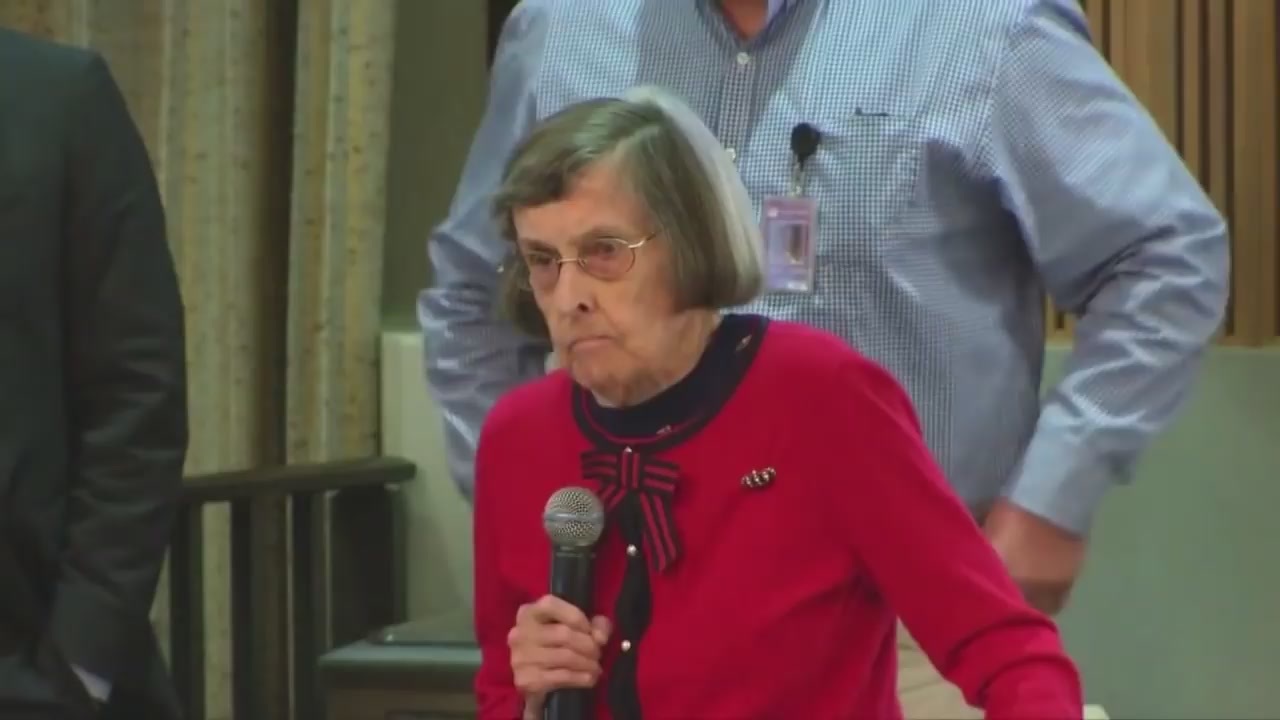You might recall Greta Rogers as the elderly woman who unloaded on Phoenix Suns owner Robert Sarver and the Phoenix City Council at a public forum in 2018. The image of Rogers, with her silver hair, red sweater, and glasses, verbally decimating the local millionaire quickly became a viral moment. She made it onto ESPN, the Washington Post, and even called into the Dan Le Batard Show with Stugotz. But it's easy to forget that, behind that viral clip, Rogers had very legitimate reasons to be mad at Sarver: He was asking the city council for $150 million to renovate the Suns' arena at a time when the team was coming off a pitiful 21-61 season and were in the middle of an even worse one, eventually fishing 19-63. As Rogers told the council in 2018 about Sarver: "He’s so tight, he squeaks when he walks.”
Now that the Suns are deep in the playoffs, making their first Western Conference Finals appearance since 2010, I called Rogers this week to see what thought about the team's success. (I made this phone call before news broke that Chris Paul was out indefinitely due to being placed in the NBA's health and safety protocols.) Had she perhaps softened on Sarver now that the team has a chance to be playing for the NBA title in a few weeks?
Right away, Rogers told me she hadn't watched any games; it's nothing personal, it's just she's more of a football and baseball fan. When she was growing up in the Cleveland suburb of Hudson, Ohio, in the 1930s and '40s, they didn't have a basketball team. But Rogers still had plenty to say about Sarver, which is no surprise given her decades of involvement with Phoenix politics. She is, as she told me, "A bur in the saddle of the city of Phoenix and sometimes other over-inflated organizations."
"He's tighter than a tick on a dog's back in July. He's a cheapskate, that's what he is," Rogers said of Sarver during our phone call. "He has a lot of money, most of which he inherited."
Rogers has been a longtime fixture at Phoenix council meetings. She moved to Phoenix with her family in 1973 because she's asthmatic. After her moment of fame in 2018, the Arizona Republic wrote a profile which noted that Rogers had been speaking at city council meetings for three decades, and a council spokesman estimated that Rogers had spoken at least 1,000 times. Rogers told me that she got her start decades ago when she was asked to serve on the neighborhood and housing commission. At first, she said no.
"I demurred, and got called back one or two more times and I finally said, 'OK, I'll give it a shot and if I don't think I can make a constructive difference for the benefit of the city of Phoenix, the citizens of the city of Phoenix, within three months, I will resign," Rogers said. "And I did make a contribution, and I served on that group for like 10 years."
Rogers estimated she has attended "many, many, many" council meetings and served the city for 20 to 25 years. "I think with the benefit of effectiveness," she added.
Then came the 2018 council meeting, which was held after Sarver asked for $150 million from the city for stadium renovations. "When he bought the Suns, he knew where they played," Rogers pointed out. The proposal was criticized locally for how little chance the public was given to weigh in on the issue. Republic columnist Laurie Roberts wrote at the time, "If only the Suns were as fast on their feet as city officials, who insist that the deal cannot possibly wait until citizens can actually see and consider whether this is the way they want to spend their money."
"He was calling his shot. The beggar was being the chooser," Rogers said of how Sarver asked for the money. "OK? And when that hit the papers, it was not a popularly accepted premise for getting what you want, Charlie Brown."
The stadium deal ultimately passed. But even before that vote, Rogers didn't like Sarver. As she told me: "I have had no respect for the man from his inception basically of buying the Suns from Jerry [Colangelo]. Jerry's a gentleman and he was a good owner and he brought professional sports to Phoenix, the first professional sports team is the Suns. He was a gentleman and a respected citizen leader in this city, and he still is today."
"I've never met the man personally. I wouldn't know him if he knocked on my door and I opened it and saw him standing on the other side of it. I've never met him," Rogers said of Sarver. "But I know how he conducts himself because he's a public figure as owner of a pro team, and he's not a person in my opinion who commands respect."
As for herself, Rogers insisted she's just a person who speaks her mind. She always gets the newspaper, she told me, and takes the Times on weekends. She doesn't have the internet because, she says, "I don't need it." She's an avid reader, a habit she carries "so I know that I'm not just sitting here absorbing soap operas on TV or other inane stuff."
"I'm not a goody two-shoes. I say it the way I believe it is," Rogers said. "I tell truth and I'll tell truth to power whether they like it or not."
Correction (8:30 p.m. ET): A previous version of this story incorrectly stated when Rogers grew up. She grew up in the 1930s and '40s.






